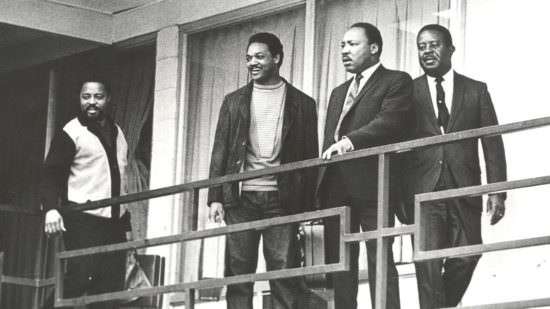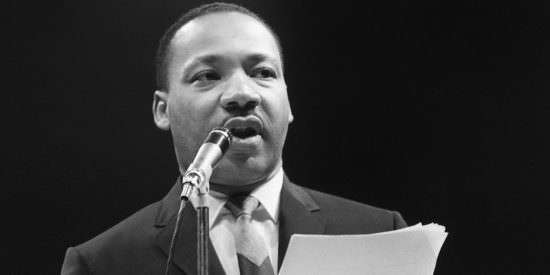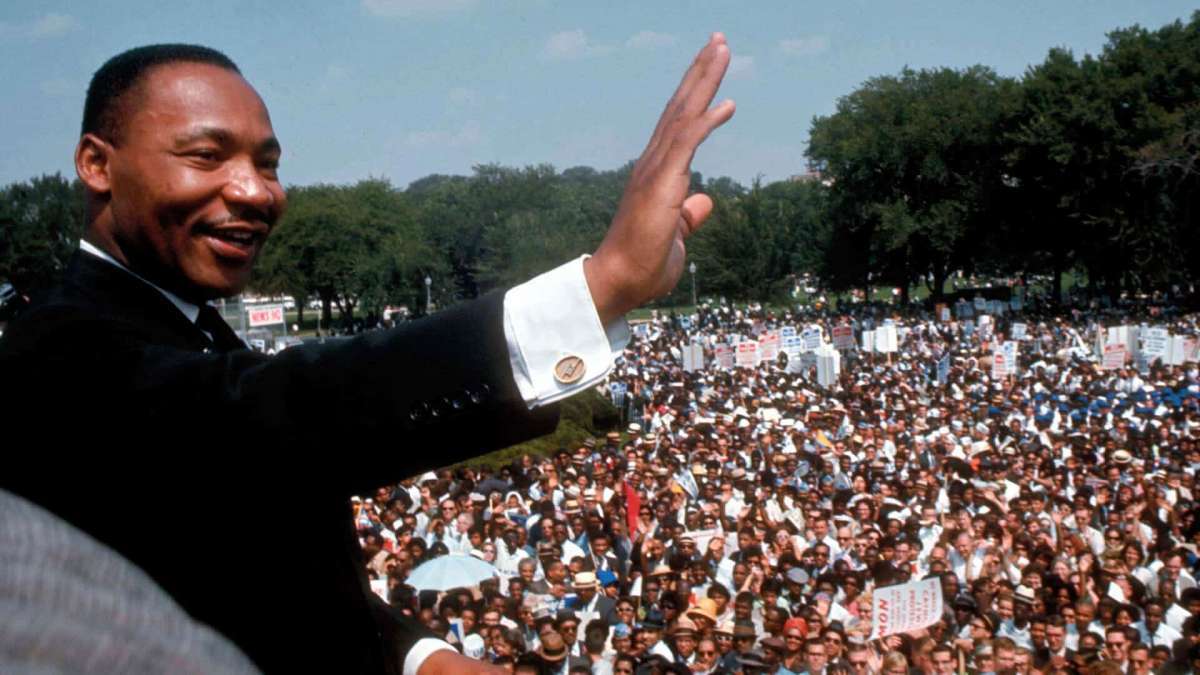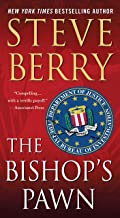The Bishop's Pawn
Today, we celebrate the life and legacy of Dr. Martin Luther King, Jr. Later this year, we will be marking the 50th anniversary of his assassination. Bestselling author Steve Berry has a forthcoming book, The Bishop’s Pawn, a historical novel that looks at the assassination of Martin Luther King in a whole new light and begs the question of why the civil rights icon was assassinated. To commemorate King Day and learn a little more about what Berry has in store for us in his new novel, we spoke with the author whose insight and understanding pointed to the one thing that is important to remember on this day: the strength and endurance of a man.
BookTrib: Your novel focuses on the King assassination. What do you think history has gotten wrong or fails to teach us about what happened?
Steve Berry: To this day we have no idea why Dr. King was murdered. Every investigation— and there were only three—had a predetermined outcome and they investigated toward that outcome. They simply looked for evidence to support whatever theory they believed happened. We have yet to see an objective, apolitical investigation.
BookTrib: And there was only the one shot, right?
SB: Ray loaded one bullet into the rifle and fired one shot. That’s from several hundred feet away, balanced in a bathtub with the gun out a window, in the dusk of evening. Not bad for a failed, petty criminal who was no trained marksman.
BookTrib: Martin Luther King Jr. came onto the scene in the mid-1950s, By 1968 he was in a different place, politically and spiritually. What were his last days like?
SB: His last year was tough. He was suffering from depression. Drinking too much. Traveling constantly. The Southern Christian Leadership Council that he had been running was splintered, his message of non-violence no longer resonating. Some of the more violent factions were taking over and it seemed like the civil rights movement was headed in a new direction, one King did not approve of. He also lost the ear of the president when he opposed the Vietnam War in April 1967. So it was not the best of times. If you listen to the speech he gave on the night before he died — now called The Mountaintop Speech —he spoke like a man who knew he was about to die. That’s what sparked my interest for the novel.

BookTrib: It is unfathomable to some, and forgotten by many, that King wasn’t a man who was particularly revered in his time. A lot of people saw him as a problematic and polarizing figure. At what point did that change?
SB: Definitely after his death. It’s interesting because I think he’d be appalled that his birthday is a national holiday. Yes, he had an ego. Yes, he had pride. But he always said that the movement wasn’t about him. There’s a conversation about this in the novel toward the end. By his own admission, King was no saint. He was a man with faults. The civil rights movement made him a leader, but his murder made him a martyr and martyrs, by definition, acquire saint-like status. Today, people really take exception to those who point to his flaws. They remember him a bit different than reality. I look at him as a great man, with faults, who did great things. He did more to change social justice than anyone in the 20th century. The novel clearly shows this part of him. The good and bad, always mindful and respectful of his legacy.
BookTrib: Why did the FBI invest so much time in trying to bring King down?
SB: One reason: J. Edgar Hoover. He despised King. This is all explored in the novel. But the FBI agents themselves have to bear some of the responsibility too. They knew what they were doing was illegal and not one of them stood up to say it was wrong. At least not until after Hoover died in 1972. But, by then, King was dead and the damage had been done. Hoover used communism as his basis for doing what he did. He played on people’s fear, calling King a communist at every opportunity and linking Moscow to the civil rights movement. This was despite an internal FBI report that found no such connection, a report that Hoover ordered revised to change its conclusions.

BookTrib: Why were people so afraid of Hoover?
SB: Presidents weren’t so much afraid of him, as much as they liked to use him. Hoover realized this early on, so he made himself useful to Eisenhower, Kennedy and Johnson. FDR and Truman not so much, but neither challenged him either. The only president he was terrified of was Nixon, who was more deceitful and cunning than Hoover would ever be. And contrary to what folks may think, Hoover never blackmailed anyone. Instead, he would bring a person in for a private talk. Then he’d say, ‘We came across some things in the course of an investigation. Things about you. Entirely by accident, but fortunate we did. Here is what we have. Now, don’t worry, it’s under control. I’ve taken care of it. This will never see the light of day.”
Of course, the person would be eternally grateful for the ‘favor.’ Hoover built up a legion of people who owed him, which allowed him to stay in power a long, long time. Here’s a fact: when he died the announcement of his death was withheld for a few hours, time enough to allow his long time secretary to destroy all of his personal files. And she did.
BookTrib: There’s been this new push to declare groups like Black Lives Matter and other social justice groups, formed in the spirit of King’s SCLC and the NAACP, as dangerous organizations. How did we get where fighting for equality is equated to terrorism?
SB: We get there because of hate and fear. This is exactly what happened 60 years ago. Hoover played on those same two elements. He called all activists communists. It’s a fact that when people are afraid, they willingly allow their rights to be trampled on. That’s what the McCarthy era was all about in the 1950s. We simply ignored the First Amendment. I explored all this in a previous novel, The Paris Vendetta.

BookTrib: We’ve seen a return to the kind of violence King abhorred through mass shootings, Charleston, Charlottesville. Has enough been done by our government to prevent these kinds of hate crimes?
SB: There’s literally no way to monitor over 300 million Americans. We live in a free society. What we can do is build a world that does not foster violence. The civil rights movement was a movement of non-violence. That was Martin Luther King Jr’s main legacy. But we forget that people were killed every day while fighting for equality. In St. Augustine, Florida three young men were arrested, and spent six months in jail, simply for ordering a hamburger and a Coke. Did they respond with violence? No. They stood tall, went to jail, served their time, and made their point.
BookTrib: What message should people take from your book and the legacy of Martin Luther King?
SB: Just how relevant he remains. That was something he struggled with toward the end of his life. But, thankfully, his message survived and still lives on.
Steve Berry’s book The Bishop’s Pawn: A Novel (Cotton Malone) will be available for purchase on March 20th. Read a free preview below.
Buy this Book!
Amazon




